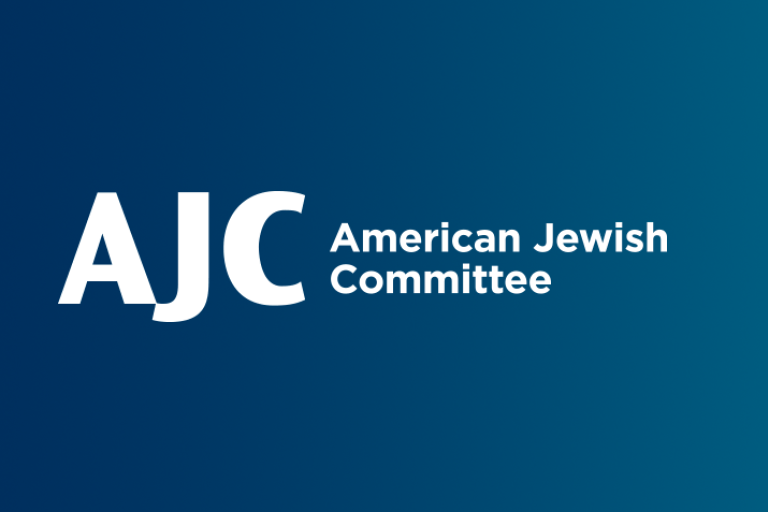October 22, 2018 — New York
This piece originally appeared in Times of Israel.
“La vie, voyez-vous, ça n’est jamais si bon ni si mauvais qu’on croit.” (“Life, you see, it’s never as good or as bad as one believes.”) - Guy de Maupassant in his novel, “Une vie”
My mother, Nelly, died at age 95. She was ready to go.
In her last years, she’d often ask plaintively why she was destined to live so long when her quality of life couldn’t keep pace with its length.
She’d quote that line: “Old age isn’t for sissies.” She also made up her own line: “Anyone who calls these the golden years hasn’t lived through them.” And she’d turn to her native Russian to repeat frequently the rhyme: “Starost nye radost, a bolshaya gadost,” which means “Old age isn’t happiness, but a big yuck.”
Yet, at the same time, she insisted on living by herself and managing her own affairs. When my wife and I periodically asked if she wanted live-in help, she’d recoil at the idea, noting that she had no desire to share her beloved apartment with a total stranger.
But three months ago, things began to decline precipitously and, until a few days before her passing, her time was divided between hospital and nursing home. She lost her mobility and many of her reasoning skills.
In moments of clarity, she would occasionally cry out: “Why is God putting me through this agony? What have I done to deserve it?”
And in one unforgettable period in the hospital, she lost consciousness and was suddenly back in France as an 18-year-old, speaking in French: “The Germans are coming. Hide. Where will we get food? Where will we get bread?”
She never got a satisfying answer from her questions to God, but then again she was never quite sure if a divine being actually existed. She preferred to hedge her bets, though, figuring that if there is such a heavenly force, better to engage than antagonize it.
Actually, my mother’s principal conversation with God over the years was another vexing issue for her: “Why had I managed to survive the Holocaust when six million fellow European Jews had not?”
Having been born in the Soviet Union and lived her first six years in the Stalinist era, and then having managed to flee safely with her family to France until the Nazi invasion of 1940, she felt she was living on borrowed time. The idea of reaching 95, seeing the arrival of great-grandchildren, and dying in her own apartment was inconceivable through most of her early years.
My mother’s life reflected much of the sweep of the 20th century, but she’d be the first to say it was otherwise unremarkable by today’s standards.
She didn’t perform great acts of bravery, rescue thousands, or build a sterling CV of top-tier alma maters, dazzling job titles, and impressive awards. Nor was she the stuff of newspaper columns or social media buzz.
But to me she was a hero, however unsung, and she became an inspiration for my career path.
First, she began life in the Soviet Union, then had to start over again in France, and then a third time in the United States — each time from scratch. There was no personal fortune to cushion it, and no team of social workers or volunteers to facilitate the transitions. She and her family, assisted by other close relatives, did it on their own.
Second, during the 17 months of fleeing and hiding from the Nazis in France, she went from teenager to adult very rapidly. Her middle-age parents were shell-shocked and disoriented. Together with her older brother, Yuli, she took on one responsibility after another.
Third, when she came to America, she first helped out with French war relief, then dreamed of a happy marriage, a suburban house, and several children. It wasn’t to be.
She ended up with a failed marriage, a bitter divorce at the age of 37, one child, and an apartment in a dicey part of Manhattan, where the fear of crime was real.
She had to work full-time as a secretary and bookkeeper after the divorce (and actually continued until her retirement at 83), leaving the apartment before me in the morning and coming back before dinner. Money was always an issue. The alimony wasn’t much, and didn’t always come on time, if at all. And contrary to today’s helicopter moms, mine never got to see me play sports, debate, or do other school activities.
But I didn’t resent any of it. To the contrary, I admired her. She refused to give up or give in. She somehow found the strength, day after day, to wake up at the crack of dawn, prepare meals, go to work, keep the house in order, and be there whenever I needed someone to talk with or a shoulder to cry on.
I grew up quickly. At times, I became my mother’s counselor, shrink, defender, and advocate even as a young boy — and notwithstanding my own occasional issues with her, as any child has with a parent. Yes, she could, I knew, be opinionated, stubborn, and short-tempered.
I came to understand that my mother also had profound disappointments.
She always felt she was the less loved and appreciated child, compared with her older brother. She would sometimes look at me, with tear-filled eyes, and ask why her father had never said she was beautiful as a young girl.
She had to work, but, as a woman, was up against impenetrable glass ceilings.
As a divorcée in the early 1960s, she was often shunned socially. Hosts wanted even, not odd, numbers at their dinner tables, especially if the extra person — horrors! —was a woman.
And though an incorrigible romantic, luck was not on her side. One long affair with a married man, who died of a heart attack, was just about it after the divorce. And then nothing for the last 45 years of her life.
But again, my mother found the faith, fortitude, and footing to go on.
Later in life, she really hit her stride as a grandmother of three boys. She was there for them 24/7. No, it wasn’t the stuff of fancy vacations, safaris, ski trips, or cruises. She couldn’t afford them, and, even if she could, she much preferred to spend her money on longer-lasting, less ephemeral, things.
She offered her grandchildren love, time, attention, an open house, and unbeatable chicken soup. She was always available and never too tired, busy, or distracted to say “no” to them. And the three boys responded with reciprocal enthusiasm for, and devotion to, their Babushka (“grandmother” in Russian) right up to the very end.
They described her as “surprisingly progressive” in some ways. She was certainly open to their friends, girlfriends, whatever. But she was also insistently “old-fashioned” in others.
She believed in those vanishing qualities of manners, decorum, punctuality, grooming, and personal responsibility. How often she would complain that civility seemed to have gone out the window in contemporary America! She spoke despairingly of the “coarsening” of the country.
And the more I think about her role as my mother, the more I’m in awe.
She was lonely, but never held me back. I could have gone to college in New York and been geographically close, but she wanted me to follow my dreams. And the pattern repeated itself with graduate school and work. She never complained, even as I now realize what a gaping hole was created in her life by my absence. After all, in many ways it was just the two of us. She divorced in 1961, lost her father in 1964, and her mother and brother in 1973.
She was not a woman of deep religious observance, but she was a proud Jew and never understood those around her who weren’t. She taught me to respect and embrace all Jews, a lesson she had learned from the Holocaust. She went to the synagogue for the holidays, even as some cynical family members mocked her for going, and though she couldn’t read Hebrew. But, instinctively, she knew it was her place to be, and she was there from start to finish. I wouldn’t let her go alone.
One of her proudest moments came when she had a Bat Mitzvah in her early 60s. She was so excited. So, too, when she had the chance to visit Israel in midlife, see her many relatives there, and admire the country.
She was always a believer in a Jewish state. Her father had eagerly wanted to go to Palestine from Russia, but even though it didn’t come to pass, the home was unmistakably Zionist.
When the family was trapped in Europe in 1940-41, with nowhere to go because of closed borders for Jews, a sovereign Israel would have answered their desperate need. And her brother was arrested by the FBI for smuggling weapons from the U.S. to the Jewish underground in Palestine, prior to the 1948 War of Independence.
In our noisy, look-at-me world, my mother went largely unnoticed. She was one of those quiet people who kept an office running and a family humming; who always gave something, even a dollar, to charitable causes; who loved kids and hated to see any child mistreated; who cherished daily the freedom and opportunity America gave her; who obeyed dutifully every law and paid her taxes down to the last cent; and who unfailingly treated all people with the same respect and dignity.
There are lots of things in life we get to choose. A mother isn’t one of them. I was lucky. I hit the jackpot. And my luck ran for nearly seven decades.



